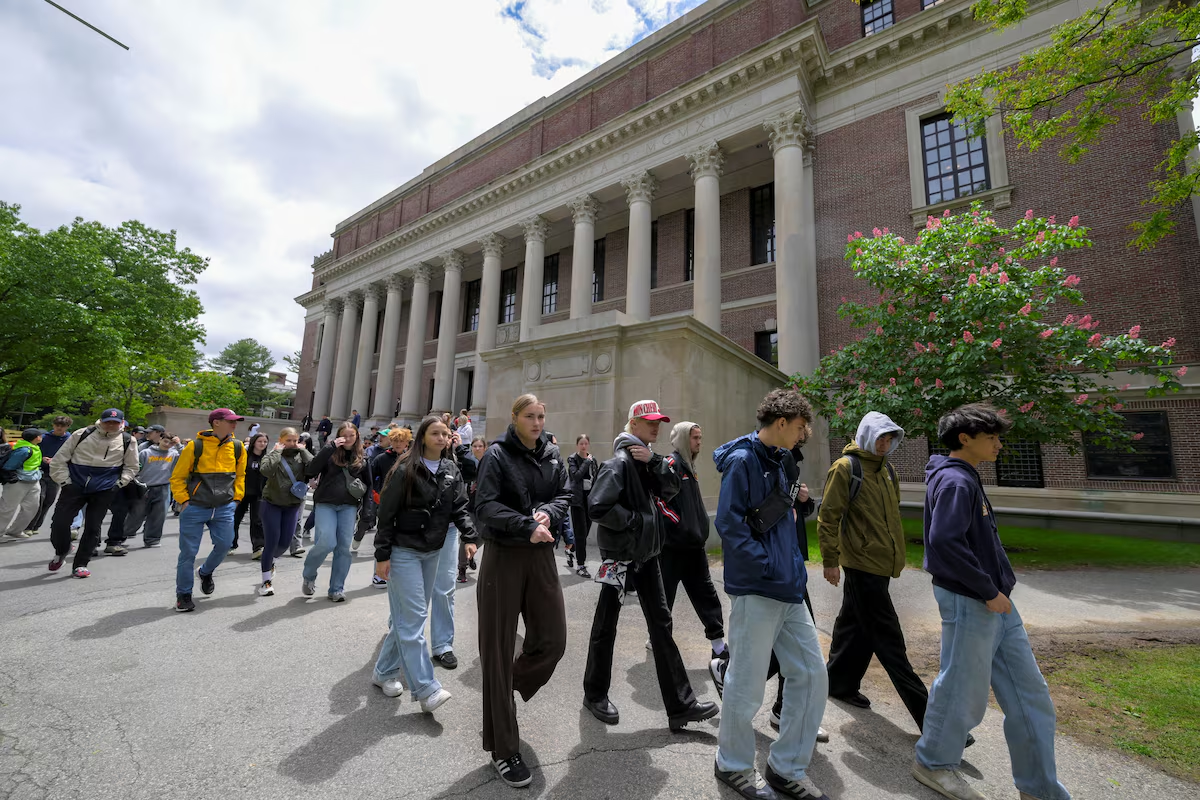A federal judge on Friday issued a temporary restraining order blocking the Trump administration from enforcing a directive that would bar international students from attending Harvard University.
The ruling, handed down by US District Judge Allison Burroughs, came just hours after Harvard filed suit in Boston federal court. Burroughs found that the university would suffer “immediate and irreparable injury” if the Department of Homeland Security’s ban were implemented.
The ban, announced Thursday, directly threatened a quarter of Harvard’s student population and escalated tensions between the government and elite universities. Burroughs’ order will remain in place until a May 29 hearing, when the court will consider a longer-term injunction.
Legal Battle Over Foreign Student Enrollment
The Trump administration justified the move by citing Harvard’s handling of antisemitism and a lack of compliance with federal oversight on foreign students. Harvard countered that the action exceeded the government’s legal authority and violated constitutional protections.
In its complaint, Harvard claims the directive violates free speech and due process rights and sidesteps federal procedures. The university warned it could no longer admit new international students on visas for at least the next two years and feared the chilling effect would dissuade future applicants.
Harvard President: Futures at Risk
Harvard President Alan Garber condemned the administration’s actions in a statement:
“We condemn this unlawful and unwarranted action. It imperils the futures of thousands of students and scholars across Harvard and serves as a warning to countless others at colleges and universities throughout the country who have come to America to pursue their education and fulfill their dreams.”
About 6,800 of Harvard’s students—27% of the student body—are international, up from 19.6% in 2006.
White House and DHS Push Back
White House spokesperson Abigail Jackson sharply criticized Harvard’s priorities:
“If only Harvard cared this much about ending the scourge of anti-American, anti-Semitic, pro-terrorist agitators on their campus, they wouldn’t be in this situation to begin with.”
Tricia McLaughlin of the Department of Homeland Security defended the directive, saying the lawsuit “seeks to kneecap the president’s constitutionally vested powers” and added, “It is a privilege, not a right, for universities to enroll foreign students and benefit from their higher tuition payments.”
Ongoing Legal Dispute and Financial Stakes
This latest legal clash adds to Harvard’s ongoing suit against the Trump administration over the freeze of more than $2.6 billion in federal funding. Legal experts suggest the government’s actions may be seen as politically motivated and lacking legal justification.
Despite its $53 billion endowment, Harvard emphasized that most of its funds are restricted and warned that losing its tax-exempt status—another threat floated by Trump—could severely impact operations.
Global Repercussions and Institutional Disruption
The directive has had immediate and disruptive consequences. International students already enrolled or recently accepted must now consider transferring or risk losing legal status. Harvard said over 300 dependents would also be affected, and academic programs dependent on these students are now in disarray.
Other institutions have taken notice. The Hong Kong University of Science and Technology issued an “open invitation” to displaced Harvard students.
MIT President Sally Kornbluth condemned the action as “devastating for American excellence, openness and ingenuity,” adding, “MIT would not be MIT without you.”
University Autonomy Under Fire
Harvard claims the government’s broader demands—including changes to governance, admissions, and faculty hiring—amount to an attempted takeover. In its lawsuit Friday, the school wrote:
“With the stroke of a pen, the government has sought to erase a quarter of Harvard’s student body, international students who contribute significantly to the University and its mission.”
The next chapter in the legal fight unfolds on May 29, when the court will consider whether to extend the restraining order into a permanent block.





